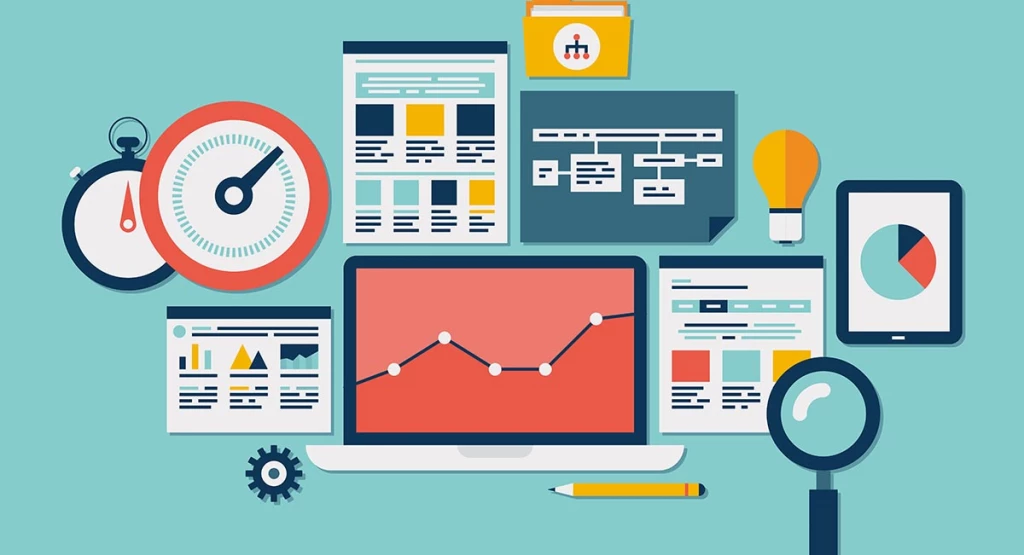How Data Mining in CRM Will Benefit Your Business
Understand how data mining in CRM can help your business by making the process of building and maintaining the customer relationship more productive.

Customer relationship management, or CRM, is an integral part of every business. It helps retain old customers and acquire new ones to help drive more sales. It acts as a central database where all the information about the customers is stored.
Well, it’s a combination of strategies, practices, and technologies that allows companies to manage customer interactions and data throughout the customer life-cycle. So where does data mining comes in? A good CRM will only help you collect, store, and organise data from every possible source. For instance, it combines with a document management system to gather all the information it can. However, the best CRM software are modelled to analyse and interpret the data as well.
Let’s first understand the term ‘data mining.’
What Is Data Mining?
Data mining is all about finding out the hidden patterns and relationships in a large volume of data. The data is first collected, which is followed by selecting a suitable algorithm to uncover trends and correlations for facilitating better business decision making.
The basic working algorithm is about identifying trends in a set of data and using the analysis for parameter definition.
Role of Data Mining in CRM
The main purpose of CRM is to establish a relationship with customers and other individuals. In order to ensure the best relationship with customers, it’s essential to possess all the right information and group it correctly.
With all the information that the system collects, data mining can be of great help. Data mining can help analyse and process the data, making it easier for the business to interact with customers and future clients.
Although data mining is a relatively new trend, businesses from all verticals have started investing in data mining technology. Companies can study historical data and information about their customers and input them into the tool for a better process. For once, it will definitely help improve customer retention as you will be able to analyse their purchase behaviour and provide them customised service.
It gives you a holistic view of the customer’s life-cycle, which comprises of customer identification, attraction, retention, and development. The critical elements of data mining are predictive modelling, forecasting, and descriptive modelling techniques.
Combining data mining with CRM can help you select the right prospect, segment your audiences, set optimal pricing policies, and more.
Benefits Of Data Mining in CRM
Some of the areas where the application of data mining in CRM can be quite helpful:
Helps in Sales Forecasting
Data mining can help you predict future trends by analysing past behaviour adopted by the people. This is quite helpful in making re-stocking decision as you neither overstock your products nor understock it so that your customer doesn’t have to return empty-handed.
In short, it helps you with supply chain and financial management, which are co-related. And thus, you gain control over your internal operations.

Helps in Market Segmentation
Data mining helps you correctly segment your target audience based on demographics, buying behaviour, gender, and other factors. The information can be collected through some sort of market survey, social media platforms, and more.
You can then design your marketing campaign and strategy, keeping their tastes and preferences in mind. It will automatically result in increased ROI for your business. It removes inefficiency by removing customers from the list who shows little to no interest in your product, saving you time and money.
Helps in Making Quick and Smart Business Decisions
Data mining uses predictive model analysis to determine each customer’s lifetime value. With such information and in-depth insights, it enables you to create personalised service for each customer appropriately by ensuring proper allocation of funds.
For example, your billing software solution contains all the information about your new and old customers. You can collect the information and use it to study the buying behaviour of those customers, and create a personalised experience for them.
Helps in Fraud Detection
One core advantage is that it helps in detecting fraud. How?
For starters, it analyses past fraudulent activities to prevent it from occurring again. It keeps an eye and immediately detects in case it notices a similar transactional process in nature. It allows businesses to take corrective measures to stop fraud from happening.
Institutions like banks and other financial companies can make use of data mining to predict fraudulent trends and reduce the number of bad debts.
Helps in Increasing Customer Loyalty
Every time a competitor offers a lower price, customers jump from one ship to another. If you want to reduce this customer churning rate, data mining can help.
For example, data mining uses a model called ‘customer cluster,’ whereby it uses data from audiences on social media sites to generate ideas for improving brand service, satisfying customers, and increasing loyalty.
In fact, data mining is not always customer-centric. Inputs from your employees can also give you a great insight into how to improve your service, get feedback on product development, and more.
In short, determining your lifetime customer value not only helps you improve your acquisition costs but also enables you to find out why customers bail. And by identifying reasons, you can create strategies on how to retain your customers and increase brand loyalty.
Helps to Predict Numbers for Warranty Claims
Data mining helps you predict the number of customers who will actually cash in on the warranty you have set up. You can then calculate the average cost of those claims.
It’s usually done by looking at the data of past warranties or guarantees, net sales, and profits.
Final Words
It’s clear that exploiting CRM in this age of data analytics enables you to optimise business opportunities. It makes the whole process of building and maintaining the customer relationship more productive.
The more data you gather, the more value you can deliver to your customers, that could ultimately result in increased revenue. However, it largely depends on how effectively you utilise the data. The key to an effective CRM is not just in data collection but also in how you organise and interpret it.
So if you are sitting with a load of customer data and not doing anything with it, it’s time to take action. It’s an excellent opportunity to get the most out of your business data.

Himanshu Singh is a Marketing Specialist at SoftwareSuggest, He is well versed in software platforms like eCommerce platforms, billing software, document management. He is also interested in domains like Machine Learning and Semiconductors. In his spare time he enjoys Guitar, Badminton, and Photography.
LinkedIn: www.linkedin.com/in/himanshu-singh-marketer
Twitter: https://twitter.com/MarktrHimanshu
Really Simple Systems is now Spotler CRM
The same great technology, a CRM platform that is focused on the needs of B2B marketers, provided by the same great team, at a great price!